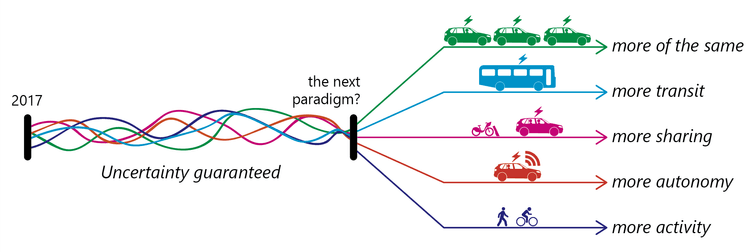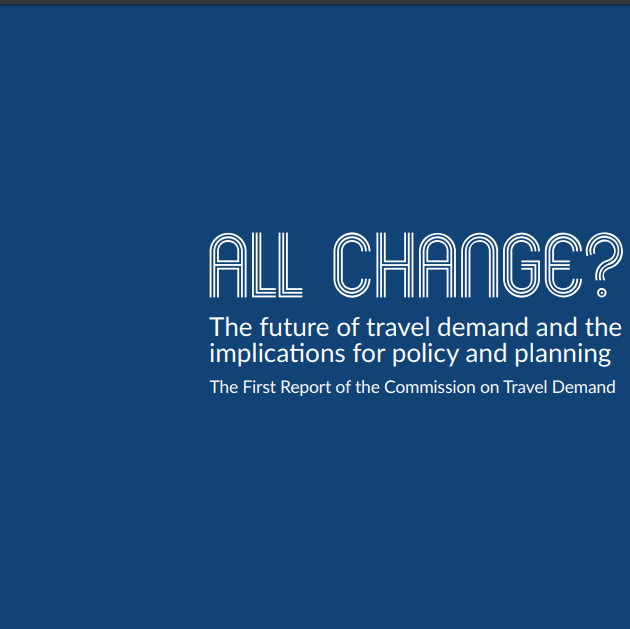
blog: Uncertain times ahead?
Friday 11th May 2018
Experience tells us that if we try and predict the future, we will almost always be wrong and the further ahead we try and predict, the more wrong we are likely to be. These statements ring true in most areas of forecasting, but last week’s launch of the first report of the ‘Commission on Travel Demand’ provides a timely reminder of why we need to be cautious when using forecasts to predict future travel demands, particularly where these are used to inform decisions on future transport infrastructure requirements.
It makes a fascinating read, and the authors should be proud of their work – particularly given that this isn’t a specially convened Government panel, but a group of highly skilled and knowledgeable individuals with a keen interest in understanding how societal changes and other influences affect how, where, when and why we travel. It is particularly illuminating in that it provides a better understanding of the causes and effects of uncertainty when trying to make predictions, and takes both a forward looking and rear view perspective to try and learn from past mistakes.

The report covers plenty of ground, much of which resonates with my own thinking and that of ITP. In many ways it calls for a complete re-examination of how we plan for transport infrastructure. Whilst not explicitly saying so, the report findings make a compelling case for the use of visionary approaches to planning and transport, rather than the historical ‘predict and provide’ approach which still prevails despite its supposed demise in the late 1990’s.
Some of the stand-out interpretations that I have taken from the report are:
- The Government plans to spend £90 billion on transport infrastructure over the next 5 years with the decision to invest based largely on historic forecasts of ever growing demand for car travel, yet we travel substantially less today, per head of population, than we did one or two decades ago.
- These changes in travel behaviour cannot easily be explained by current models suggesting our forecasting and modelling procedures need a significant overhaul, rather than just a tweak to the input parameters. Young people in particular are exhibiting markedly different travel behaviours with significant reductions in driving licences amongst this group. Interestingly these changes are largely driven by influences outside of transport, suggesting our models must also take these issues into account.
- Managing demand, whilst politically challenging, should have a role to play in ensuring our future towns and cities are preserved for people and not for cars
But please don’t take my interpretation as being accurate, these are simply my initial views based on a first review of the report – and I would recommend it as an essential read for all transport planners, as it shines a light on issues which sit at the heart of our profession including automation, electrification of the vehicle fleet, health, air quality and wider society changes.
The recommendations should be taken seriously, but in my view this will only happen if the profession embraces the need for a different approach in how we plan our future towns, cities and transport networks. Let’s hope the industry can shake off the shackles of ‘the old way of doing things’ and start to embrace a new era of ‘visionary transport planning’ that better understands the emerging travel trends resulting from modern lifestyles, new technologies, and a desire to be more sustainable in how we travel and conduct our lives.
Exciting times lie ahead for transport planners if we are willing to be brave enough to not always accept that the future has to look like the past. Let’s define what we want our future places to look like, and then build our transport systems around that vision. The full report can be found here.
'All Change' image source: Marsden, G. et al. (2018) All Change? The future of travel demand and the implications for policy and planning, First Report of the Commission on Travel Demand, ISBN: 978-1-899650-83-5
